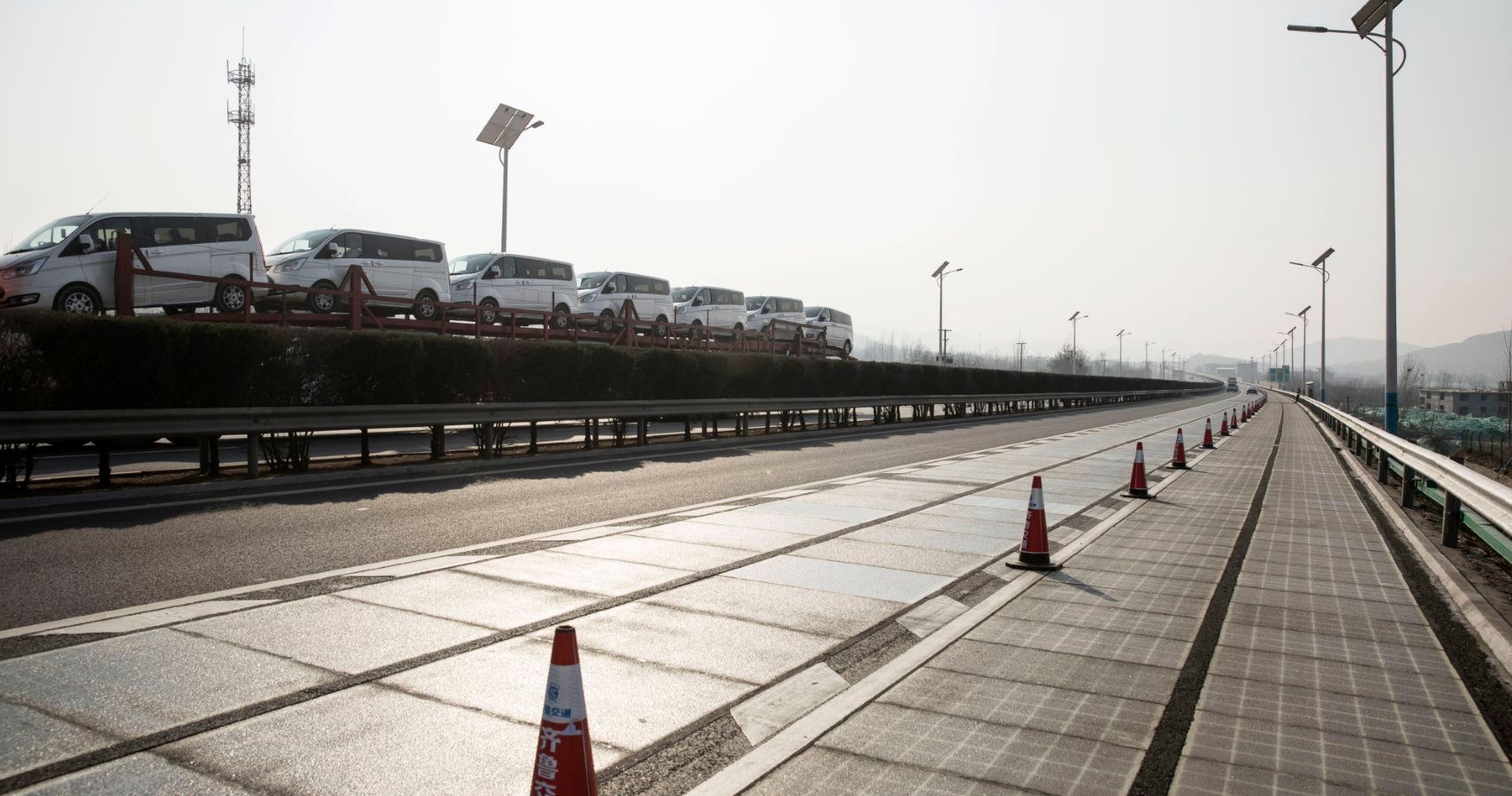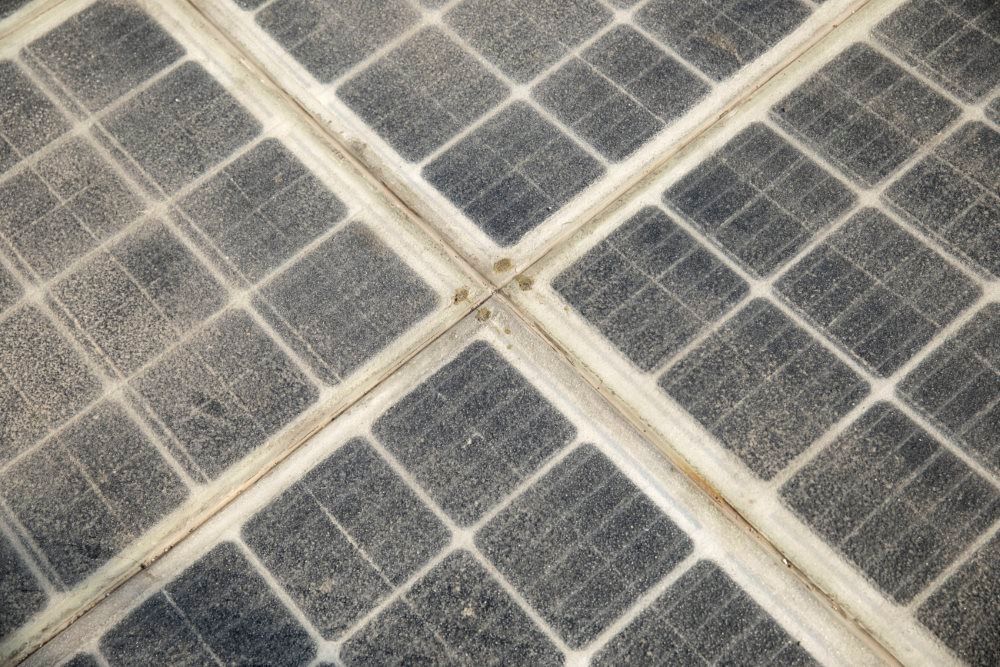There’s a road in China that can wirelessly charge cars using the power of the sun.
Roads have long since been seen by civil engineers as a possible power source. They are, after all, just flat surfaces sitting in the sun all day. If solar panels could be placed there then every road on the planet could turn into a solar energy generator, powering countless homes (at least, when the sun is out).
It sounds like a science fiction author’s pipe-dream, but, according to Bloomberg, there's a road in China that’s lined with solar panels and sensors to detect traffic that crosses over of it. The road is located just outside Jinan, the capital of eastern China's Shandong province, and sees about 45,000 vehicles cross over it every day.
RELATED: KIA DEVELOPS NEW WIRELESS CHARGING SYSTEM FOR SOULS
China’s Qilu Transportation Development Group has converted one kilometer (or about 2/3rds of a mile) into a “smart road”. They’ve replaced the usual asphalt with two layers of material: one a transparent but strong material that allows cars to drive over it, and the other is solar cells. This allows the road itself to power the streetlamps that line it as well as some 800 homes.
But this smart road goes one step further. Between the transparent and photovoltaic layers is enough space to run inductance wires and sensors. This allows the road to charge any electric vehicles that are set up for wireless charging, as well as monitor traffic in real time.
This is an incredible boon to urban planners. Suddenly, you can have real-time data shared between all cars at all time, allowing for up to the second navigation updates to clear congestion. Also, range anxiety on electric cars is eliminated when the road itself keeps the car charged as it moves.
But naturally, there are problems. The largest of which is the road is actually far more advanced than the cars driving on it.
"From the angle of the technology itself, charging is not a problem," said Qilu Transportation General Manager Zhou Yong. "The vehicles that can be charged wirelessly aren't used on roads yet."
Furthermore, it’ll take way more than 1 km of road to keep a car charged, and the cost of the road itself is prohibitively expensive. The price per square meter needs to drop to about one-third of current before it is anywhere near commercially viable.
NEXT: PININFARINA TO UNVEIL ELECTRIC SEDAN AT BEIJING AUTO SHOW



